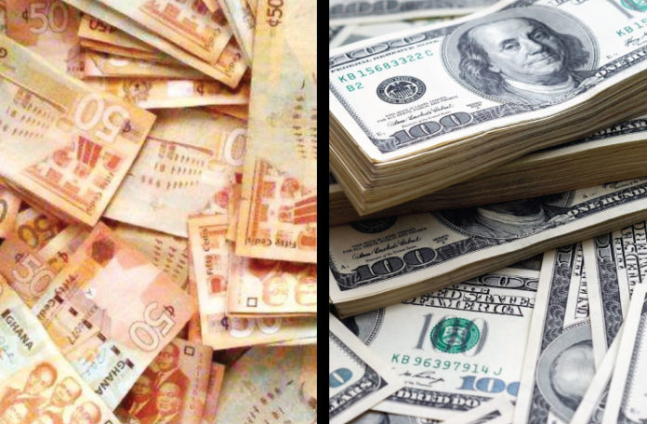Speculative demand for the dollar, payments to Independent Power Producers (IPPs) and contractors, faster growth in imports, corporate demand for dollars and seasonality pressures have underscored the cedi's bearish run.
According to GCB Capital, while the performance under the 3-year International Monetary Fund-supported programme has been impressive so far, with the macroeconomic and structural reforms broadly on track amidst the emerging signs of economic recovery, the local currency remains bearish.
It pointed out that the relatively stable start to the year has given way to patches of pronounced depreciation from late February into March 2024 and through May 2024, with the indicative US dollar/Ghana cedi retail rate drifting past the GH¢15/US$ market.
“The general macroeconomic uncertainties, Ghana's history of election-induced fiscal slippages, and the protracted negotiations around external debt exchange continue to fuel negative sentiments around the cedi's outlook in the near term, underscoring the rife speculative demand pressures on the FX market. Additionally, seasonality effects from the corporate sector, the sharper increase in the import bill through quarter one 2024, and IP-related and contractor payments, among other factors, have also enhanced Ghana cedi liquidity levels and continue to fuel speculative tendencies”, it added.
While the Bank of Ghana and the Ministry of Finance have deployed moral suasion as the main tool to calm sentiments, assuring investors of adequate reserves to meet the market's needs, GCB Capital said it appears investors will hold out for hard evidence of fiscal discipline to complement the recovery in other macroeconomic indicators.
“The pronounced revenue gap in quarter one of 2024 and the frontloaded expenditure for the period already yielded a higher primary deficit (on commitment) of 0.7% Gross Domestic Product (versus target:-0.2%). This fiscal outturn will require a stronger revenue performance through the remaining quarters of 2024 and a commitment to fiscal consolidation and expenditure rationalization to restore a balance, which is key for anchoring sentiments”, it continued.
“We welcome the targeted support to selected corporates to ease the FX [foreign exchange] pressure buildup and the partnership with the Ghana Association of Bankers to streamline documentation around foreign payments to minimise the incentives to resort to the parallel market”, it stated.
It concluded that beyond the clamp-down on advertised rates, stricter supervision and enforcement of foreign exchange rules could be more effective in quelling the speculative pressures.
Latest Stories
-
Mahama orders arrest of fake anti-galamsey taskforce extorting miners
5 minutes -
Joseph Kobina Ade Shino Coker
12 minutes -
Royal Sweet Limited signs up for JoySports Invitational Tournament 2025
42 minutes -
Ghanaian movie industry wasting talent – Gloria Sarfo
43 minutes -
Ho West MP secures 100 international scholarships for constituents
1 hour -
Bank of America’s Bernard Mensah discusses AI, jobs and global economic pressures
1 hour -
President Mahama announces plans to build six modern sports stadia
1 hour -
Expert wants gov’t to extend NSS allowance beyond service period
1 hour -
Western North: Mahama pledges action over ‘empty slogans’
1 hour -
Ghanaian AI startup Fornix Labs pilots tool to support workload of doctors
2 hours -
CCTV captures woman allegedly stealing baby at Ajumako market
2 hours -
WAFU B Boys Cup: Black Satellites take on Benin U-20 in second group game
2 hours -
Togbe Afede lauded for exemplary leadership during Asogli Yam Festival
2 hours -
Gov’t to cancel Teacher Licensure Exam on August 30
2 hours -
Ennobled Foundation webinar empowers Ghanaian youth to leverage international experience for career growth
3 hours

